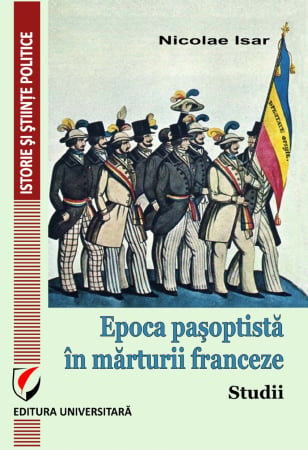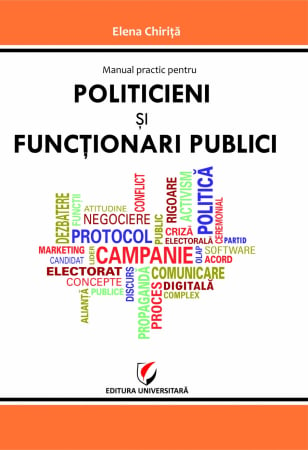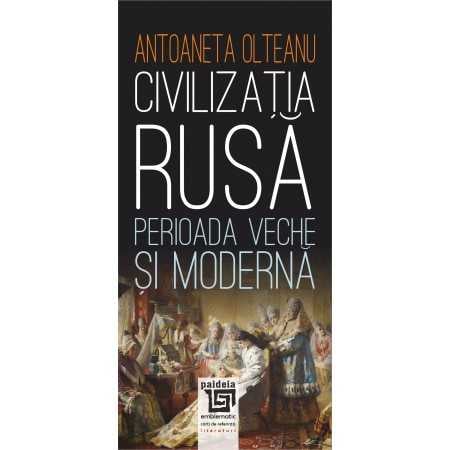6359.png) Securing the Borders of the European Union in the context of the Syrian Refugee Crisis. The Need to Rethink European Asylum and Migration Policy
Securing the Borders of the European Union in the context of the Syrian Refugee Crisis. The Need to Rethink European Asylum and Migration Policy
6359.png)
Publisher: Editura Universitară
Author: Amira Sawan
ISBN: 978-606-28-1232-4
DOI: https://doi.org/10.5682/9786062812324
Publisher year: 2021
Edition: I
Pages: 294
- Description
- Download (1)
- Authors
- Content
- More details
- Reviews (0)
The doctoral thesis aims to conduct a detailed analysis of recent developments in the European Union's border security policy in the context of what I will call the "European Syrian Refugee Crisis of 2015", for reasons I will describe later. , using the perspective of security as a socially constructed phenomenon, proposed through constructivism and especially by the representatives of the Copenhagen Schools, out of the desire to propose a viable alternative for the common European asylum and migration policy. In this sense, central in my analysis will be the concepts of securitization and political security that I will use in order to achieve the effective analysis of the border security process that I consider as a mechanism for relegitimizing the process of European political integration.
The outbreak of the Arab Spring and the intervention of NATO forces in Libya in 2011 generated an increase in the number of arrivals in the EU, but in this paper I decided to focus exclusively on the European crisis of Syrian refugees launched in 2015. I am fully aware that starting with 2015 we are witnessing a generalized European refugee crisis, but in order to carry out the analysis in this paper I chose to refer exclusively to the crisis generated by Syrian refugees.
-
Securing the Borders of the European Union in the context of the Syrian Refugee Crisis. The Need to Rethink European Asylum and Migration Policy
Download
List of abbreviations / 7
Summary / 9
Introduction / 29
Chapter I: Building the EU's foreign and security policy. The European Union 's relationship with Syria / 38
I.1 The evolutionary analysis of European security: the interpenetration of the internal and external dimensions of EU security / 38
a. The timid beginnings of the common European security / 38
b. The great reforms of the constitutive treaties and the consolidation of the European security / 42
c. Further developments in the security of the European Union / 46
d. The Lisbon Treaty and the new framework on European security / 48
I.2 European Neighborhood Policy and the importance of migration for the security of the European Union / 52
a. European Neighborhood Policy / 52
b. European policy on migration, asylum and refugee integration. Link with the security of the European Union / 58
c. The humanitarian cost of interventions in Afghanistan, Iraq and Libya and the warning about migratory pressure on the borders of the European Union / 67
I.3 European Union relations with Syria / 76
a. The beginnings of EU-Syria cooperation / 76
b. EU-Syria relationship with the onset of the Syrian crisis / 81
Chapter II: Security and the Copenhagen School. The process of securitization of threats in the political sector / 90
II.1 Constructivism and the securitization process defined by the Copenhagen School / 91
a. Constructivism / 91
b. The concept of securitization / 93
c. Political security / 96
II.2 The main criticisms of the securitization process / 100
II.3 Identifying the main features of the EU as a political construct / 104
Chapter III: Securing European borders in the context of the Syrian refugee crisis. The need to relegitimize the European political project / 111
III.1 The Syrian refugee crisis and its challenges for the European project / 111
a. The European Syrian refugee crisis and its challenges for the EU / 111
b. EU response to the Syrian refugee crisis / 119
III.2 Identifying the process of securing European borders in the context of the refugee crisis. The need to relegitimize the European political project / 129
III.3 The main criticisms of the European border security process generated by the humanitarian cost of this action / 145
Chapter IV: New developments in European security and the need to rethink European migration policy / 151
IV.1 "Fortress Europe" is a necessary evil in the context of the revival of the nationalism of the member states. The refugee crisis, an opportunity to strengthen the CSDP and the European project? / 151
IV.2 The new institutional approach on European refugee policy: protection vs. Security / 159
IV.3 Case study: Romania - an example of good practice in European refugee protection policy? / 170
Conclusions / 181
Bibliography / 191
Annexes / 208
The doctoral thesis aims to conduct a detailed analysis of recent developments in the European Union's border security policy in the context of what I will call the "European Syrian Refugee Crisis of 2015", for reasons I will describe later. , using the perspective of security as a socially constructed phenomenon, proposed through constructivism and especially by the representatives of the Copenhagen Schools, out of the desire to propose a viable alternative for the common European asylum and migration policy. In this sense, central in my analysis will be the concepts of securitization and political security that I will use in order to achieve the effective analysis of the border security process that I consider as a mechanism for relegitimizing the process of European political integration.
The outbreak of the Arab Spring and the intervention of NATO forces in Libya in 2011 generated an increase in the number of arrivals in the EU, but in this paper I decided to focus exclusively on the European crisis of Syrian refugees launched in 2015. I am fully aware that starting with 2015 we are witnessing a generalized European refugee crisis, but in order to carry out the analysis in this paper I chose to refer exclusively to the crisis generated by Syrian refugees.
This decision is based on elements such as: the gravity and urgency of the situation in Syria, considered the greatest crisis of humanity after the Second World War; the fact that the EU has reached the largest number of asylum seekers of all time, most of them from Syria, a situation which unfortunately continues today; Germany's readiness to receive refugees aimed exclusively at Syrians, or at least this was stated in the public statements of its leaders; the existence of a clear separation at the level of EU measures adopted as a result of the current crisis between Syrian refugees and others. In addition, another reason why I decided to address exclusively the European Syrian refugee crisis is that I believe that the way the EU has dealt with the crisis in Syria is one of the best examples to better understand the new crisis. EU approach on the MENA area. In this regard, I believe that due to its regional importance, to which is added the potential impact that a military intervention in Syria would have had, the EU has chosen to adopt a political and humanitarian approach to the Syrian conflict, considering it necessary to join the fight. against a bigger evil - the Islamic State, an idea valid in the way the EU approaches the new crisis of Syrian refugees on the Greek border with Turkey launched in March 2020, representing an opportunity for its global role. In the end, I would like to discuss my Syrian origins, being of the opinion that in this way, I could add value to the present research approach.
The main research hypothesis from which I started in my approach is based on the idea that with the European crisis of Syrian refugees and the consequences felt at Member State level, the previous approach to migration and European borders policy could no longer be applied, and the effects their duration will be. In this regard, I believe that with the refugee crisis there has been a security of borders both at Member State level and within the EU as a whole, adopting a series of anti-immigration and border restriction policies, contrary to the commitments made by the EU accession, while also violating the provisions of international treaties, even affecting the functioning of the Schengen Agreement, which was not designed for the free movement of refugees within the EU. In other words, I believe that due to the fact that the EU acted under the rule of urgency, being forced to improvise in the face of the impressive size of the refugee wave, it could not respond adequately to this crisis, witnessing a real " battles ”to strengthen its borders, generated by its inability to mobilize member states to take coordinated and solidarity-based measures against member states that have been directly subjected to pressure from refugees.
In carrying out this research approach, I set out to adopt an interdisciplinary approach, which involves combining tools and approaches in the field of political science, especially in international relations and legal sciences. Regarding the research methodology we used, it involved a combination of quantitative and qualitative tools, both of which were meant to support the argumentation of the main research hypothesis. Regarding the qualitative research method, it will be found in the present research project by using the fundamental theory and the case study, as well as conducting interviews. Thus, starting from the theory of securitization belonging to the Copenhagen School, I intend to make a comparative analysis of the actions that led to the securitization of EU borders. By analyzing the actions taken at EU level, I understand the identification of the border security process, starting from the contextualization and use of specific rhetoric, how the issue was politicized and what was the security decision. In other words, the first step in carrying out this research was to review the existing literature, both in terms of the theoretical approach and the European legislation in force on migration policy, asylum and refugee integration, security and EU borders, official statements, reports and studies.
Complementary to the process of applying the fundamental theory, I conducted a series of semi-structured interviews designed to help me understand the causes that made possible decisions at EU level on managing asylum and migration policy by securing borders, which were the arguments used by European leaders, what is the public perception of them, the effects and how they were felt by Syrian refugees, as well as possible solutions that respondents can offer to resolve this crisis and adopt a new one. European migration and asylum policies. Regarding the way of selecting people for interviews, I tried to include both the approach of institutions of interest in asylum such as: the European Commission through the Asylum Office within the Directorate of Justice and Home Affairs; The Romanian parliament; UNHCR Romania; Ministry of Administration and Interior through the General Inspectorate for Immigration; NGOs and other organizations that are implementing projects funded by FAMI or that are actively involved in the integration of refugees and migrants, as well as the approach of refugees, by conducting interviews with refugees from Romania, Germany and Sweden. My choice for these Member States was not accidental: I chose Romania in view of the fact that it is the Member State on which the asylum system I leaned especially, Germany due to the fact that it represents the Member State with the most asylum from the EU and Sweden because it is a country with a long tradition of providing asylum to people in need of international protection.
Quantitative research is found in this research thesis by performing the process of analysis, interpretation and comparison of existing data and statistical information in order to test research hypotheses, as well as observing the evolution of the literature. Regarding the secondary research hypotheses, they are characteristic of each chapter, and together they contribute to providing the necessary information to prove the main hypothesis. I consider the novelty of the topic to be the fact that, based on the analysis of the documents, I applied the theory and especially through interviews with representatives of international, European, national, civil society and Syrian refugees - the main beneficiaries of the European System. Common to Asylum, to be able to issue and present a series of general principles regarding the new common European asylum and migration policy. (…)

![Securing the Borders of the European Union in the context of the Syrian Refugee Crisis. The Need to Rethink European Asylum and Migration Policy [1] Securing the Borders of the European Union in the context of the Syrian Refugee Crisis. The Need to Rethink European Asylum and Migration Policy [1]](https://gomagcdn.ro/domains/editurauniversitara.ro/files/product/large/sawan_securitizarea-frontierelor-ue_bt-3047-4609.jpg)














